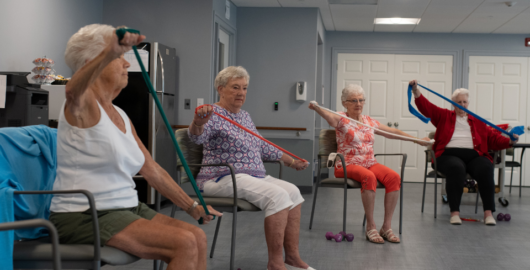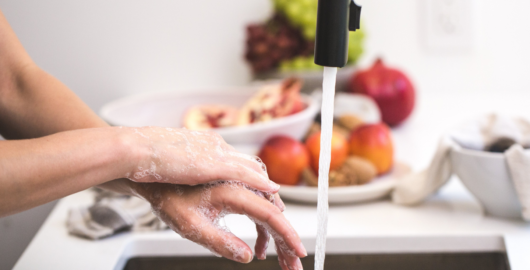Although the weather is getting warmer, news about the spread of the novel coronavirus (known as COVID-19) is a reminder that it is still cold and flu season.
For senior citizens especially — as well as anyone with a weakened immune system — diseases like the flu, gastrointestinal illness, and COVID-19 can cause many health complications and become dangerous. Fear of contracting one of these diseases can spill over into everyday life and make this time of year difficult.
But avoiding infectious diseases doesn’t need to be difficult. In fact, there are a few simple and easy-to-remember steps we can all take to protect ourselves and the people around us. By following these basic rules, we can replace anxiety with confidence and live each day safer.
Wash your hands as often as possible
Using the bathroom. Driving. Entering or exiting a building. Shaking hands. These are all times when you should always wash your hands! Proper handwashing has been shown to reduce the spread of some communicable diseases by almost 60%. Use soap and water to wash your hands for at least 20 seconds at a time. Be sure to wash your fingertips and under/around your fingernails, as bacteria often gathers in these areas.
Cough and sneeze into your arm — not your hands!
Every time we cough or sneeze, we push invisible droplets out of our mouth and nose into the world around us. These droplets can contain the infections that cause many viruses and flus. If you cover your mouth with your hand, those droplets will stick to your hand and spread to everything you touch! By covering your mouth with the inside of your elbow, you are isolating those droplets onto a part of your body that rarely touches other people and surfaces.
Clean devices that you use frequently, such as cell phones, canes and walkers.
Germs are all around us. It is inevitable that we will come in contact with them, especially on our hands. Even if you wash your hands often, it is likely that you will pick up germs on your hands throughout the day. And where do these germs end up? Naturally, they end up on the items we touch the most.
By frequently wiping down commonly used items like cell phones, steering wheels, door handles, canes and walkers, we can combat these germs and make sure they don’t end up back on our hands. Different items require different cleaning methods, so just be careful to research the best methods first.
Don’t visit public places, especially healthcare facilities, if you might be sick.
It is important not to let fear of getting sick control our lives. With that said, there are times when staying home is the best course of action. If you experience any symptoms like fever, coughing, excessive sneezing, shortness of breath, vomiting, or diarrhea, don’t go to work or other public places.
In particular, wait to visit friends or family in hospitals or retirement homes. Similarly, if you have recently returned from travelling internationally, wait a few days before visiting to make sure you did not catch anything while abroad.
Once an infectious disease is introduced into a healthcare facility, it becomes far more challenging to prevent its spread to patients and residents. The best thing is for it not to enter the facility in the first place!
Don’t be misinformed — find reliable sources of information.
Outbreaks of infectious diseases often become politically sensitive topics. However, your health isn’t a matter of opinion or politics. Be careful when searching words like “coronavirus” on Google or other search engines. Not all sources are helpful or accurate.
Only follow the guidance and recommendations of recognized health organizations, such as the Centers for Disease Control and Prevention, the World Health Organization, and your local health departments. One of the strongest weapons in the fight against disease is accurate and truthful information.
With spring beginning to emerge, enjoy the beautiful weather — but don’t let your guard down! It is as important as ever to continue practicing good habits and hygiene. By doing so, we can look forward to a happy and healthy year ahead.




